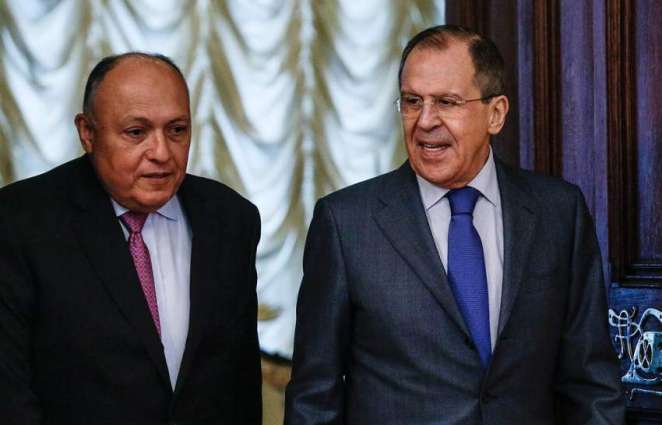Russian Foreign Minister Sergey Lavrov and his Egyptian counterpart, Sameh Shoukry, have discussed the situation in several Middle Eastern countries and joint economic projects, including the El Dabaa nuclear power plant (NPP), over the phone, the Russian foreign ministry said on Friday
MOSCOW (Pakistan Point News / Sputnik - 25th December, 2020) Russian Foreign Minister Sergey Lavrov and his Egyptian counterpart, Sameh Shoukry, have discussed the situation in several middle Eastern countries and joint economic projects, including the El Dabaa nuclear power plant (NPP), over the phone, the Russian foreign ministry said on Friday.
"The sides discussed the state and prospects of further strengthening of the comprehensive cooperation between Russia and Egypt in accordance with the Agreement on Comprehensive Partnership and Strategic Cooperation, signed in 2018. Special attention was paid to the implementation of massive bilateral trade and economic projects, the construction of the El Dabaa nuclear power plant and establishing a Russian industrial area in Egypt," the ministry said in a statement.
The diplomats also noted the need for an inclusive national dialogue in Libya, as well as a peaceful settlement along the lines of the Berlin international conference's decisions and UNSC Resolution 2510. Lavrov and Shoukry also confirmed the need to maintain the right of Syrians to decide the homeland's fate, per UNSC Resolution 2254, and affirmed the need to relaunch direct Israel-Palestine talks.
In 2015, Russia and Egypt in Cairo signed agreements on the construction of the El Dabaa nuclear power plant, as well as on a Russian $25-billion loan for that purpose. In 2017, the sides inked acts on construction contracts entering into force. In August, Egypt moved the date of issuing a construction license for the plant's first power unit to the second half of 2021 instead of mid-2020.




